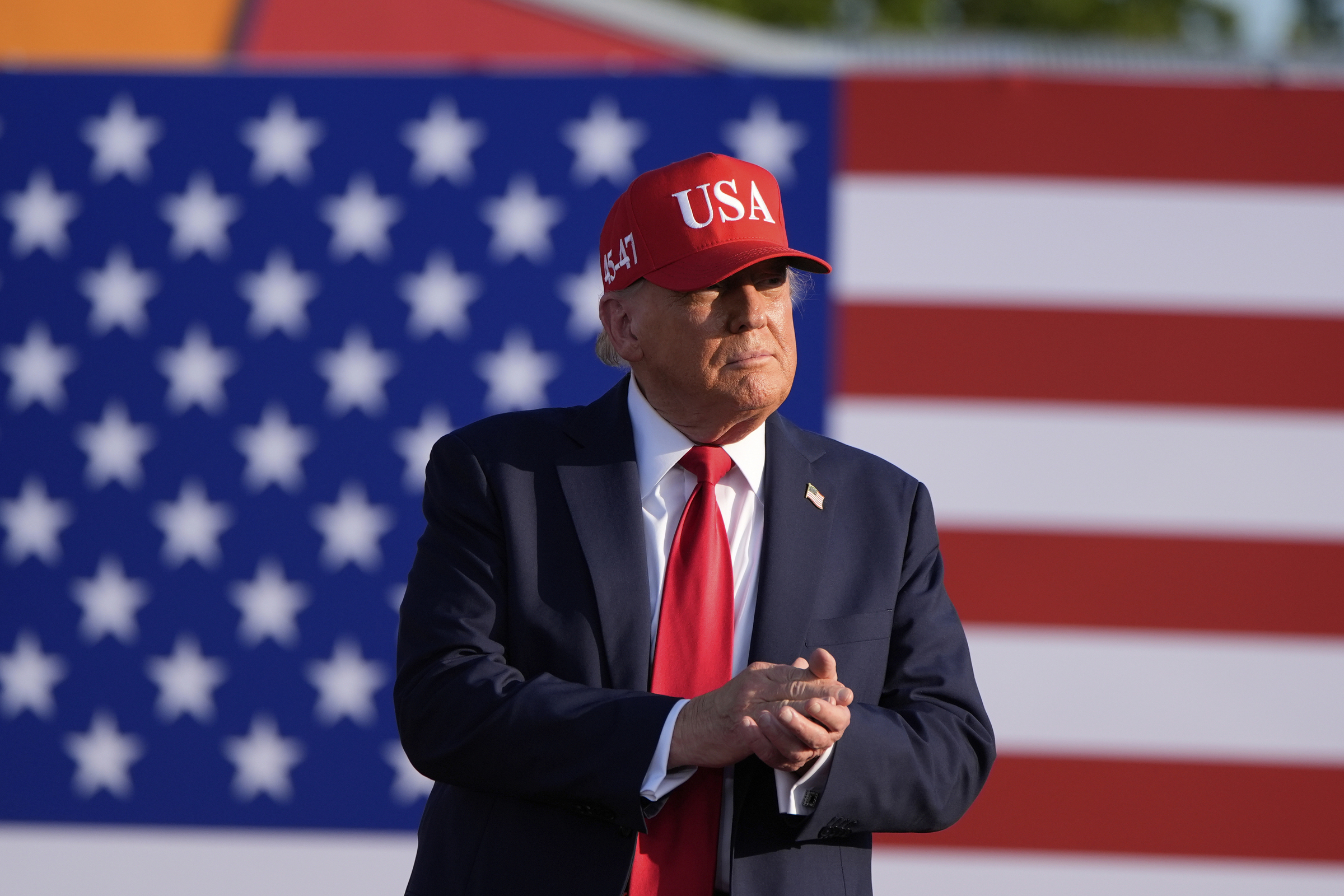Former US President Donald Trump posted two nearly identical letters on Truth Social, addressed to former Japanese Prime Minister Kishida Fumio and South Korean President Yoon Suk-yeol, announcing the tariffs.
Both letters stated that the US would impose a 25% import tariff on goods from these countries effective August 1. Trump noted this tariff is separate from additional duties applied to specific product categories.
Goods transshipped to avoid tariffs will face higher US duties. Transshipment refers to routing goods through a third country before entering the US to circumvent tariffs.
 |
President Donald Trump at the Iowa State Fairgrounds on 3/7. Photo: Reuters |
President Donald Trump at the Iowa State Fairgrounds on 3/7. Photo: Reuters
Trump warned that if these countries raise taxes on US goods, the US would add that amount to the announced 25% tariff. If these countries "eliminate tax and non-tax policies and trade barriers," the US might reconsider these tariffs. The tariffs could also be adjusted based on the evolving bilateral relationships.
In the letters, Trump praised the bilateral trade relationships with Japan and South Korea but said they lacked reciprocity. He expressed his desire for continued cooperation with both nations, despite the "significant trade deficit." The White House stated it would "do everything possible to expedite, streamline, and regularize domestic manufacturing permits."
Following the tariff announcement, shares of Japanese automakers fell in US trading, with Toyota and Honda declining 4.1% and 3.8%, respectively.
Previously, on 2/5, Trump announced retaliatory tariffs of 24% and 25% on goods imported from Japan and South Korea, respectively. The tariffs were then postponed for 90 days, with the deadline on 9/7. Last weekend, Trump declared he would send letters updating the tariffs to each country, starting Monday afternoon (7/7). The letters to Japan and South Korea were the first he publicly released on Truth Social.
Phien An (Reuters)












